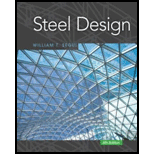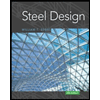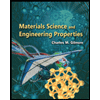
Steel Design (Activate Learning with these NEW titles from Engineering!)
6th Edition
ISBN: 9781337094740
Author: Segui, William T.
Publisher: Cengage Learning
expand_more
expand_more
format_list_bulleted
Question
Chapter 6, Problem 6.8.1P
To determine
(a)
The lightest
To determine
(b)
The lightest
Expert Solution & Answer
Trending nowThis is a popular solution!

Students have asked these similar questions
Problem 2: Use the table below to compute the
coordinates of the centroid of area shown below.
y
– 3 in.—|— 4 in. -
-3
3 in.
3 in.
x
Area
X
X * Area
y
Y * Area
Component
(in²)
(in)
(in³)
(in)
(in³)
Square 1
Rectangle 2
Triangle 3
Rectangle 4
Σ
A shallow foundation measuring 1 m × 2 m in plan is to be constructed over a normally consolidated sand layer. Given: D₁ = 1 m, №60 increases with depth, N 60 (in the depth of stress influence) = 11,
Estimate the elastic settlement using Burland and Burbidge's method.
(Enter your answer to three significant figures.)
Se
mm
and
Inet
=
138 kN/m².
A continuous foundation on a deposit of sand layer is shown in the figure below along with the variation of the cone penetration resistance qc
1.5 m
0
2.5 m
Sand
14
q= 195 kN/m²
qe (kN/m²)
9 1750
93450
9c=2900
Depth (m)
Assuming = 16 kN/m² and creep is at the end of ten years after construction, calculate the elastic settlement of the foundation using the strain influence factor method. Use the equations
22 Iz
Es
0
| Se = C₁C2 (9) Az
and
Es = 3.5qc (for L/B> 10)
(Enter your answer to three significant figures.)
Se =
mm
Chapter 6 Solutions
Steel Design (Activate Learning with these NEW titles from Engineering!)
Ch. 6 - Prob. 6.2.1PCh. 6 - Prob. 6.2.2PCh. 6 - Prob. 6.6.1PCh. 6 - Prob. 6.6.2PCh. 6 - Prob. 6.6.3PCh. 6 - The member shown in Figure P6.6-4 is part of a...Ch. 6 - Prob. 6.6.5PCh. 6 - Prob. 6.6.6PCh. 6 - Prob. 6.6.7PCh. 6 - Prob. 6.6.8P
Ch. 6 - Prob. 6.6.9PCh. 6 - Prob. 6.6.10PCh. 6 - Prob. 6.6.11PCh. 6 - Prob. 6.6.12PCh. 6 - Prob. 6.6.13PCh. 6 - Prob. 6.7.1PCh. 6 - Prob. 6.7.2PCh. 6 - Prob. 6.8.1PCh. 6 - Prob. 6.8.2PCh. 6 - Prob. 6.8.3PCh. 6 - Prob. 6.8.4PCh. 6 - Prob. 6.8.5PCh. 6 - Prob. 6.8.6PCh. 6 - Prob. 6.8.7PCh. 6 - Prob. 6.8.8PCh. 6 - Prob. 6.8.9PCh. 6 - Prob. 6.8.10PCh. 6 - Prob. 6.9.1PCh. 6 - Prob. 6.9.2P
Knowledge Booster
Similar questions
- nent 6-Transverse Shear & Deflection ↓ 2 of 2 -+ Automatic Zoom 4.) The built-up wooden beam shown is subjected to a vertical shear of 8 kN. Knowing the the nails are spaced longitudinally every 60 mm at A and every 25 mm at B, determine the shear force in the nails at A and B. (5 points) 50 300- 400 A 50 A C 150 B A 100 50 200 A B Dimensions in mm 5.) A 2.5 inch x 5.5 inch rectangular Southern pine section (E=1.8 x 103 ksi) is used in an 8 ft cantilever span subjected to the loads shown. Compute the deflections at point A. (4 points) Дarrow_forwardE:/school%20pack/BENG%202/EG231/STATICS/LECTURE%20NOTES/PRACTICE%20QUESTIONS/EG%20231%20Chap-5%20Practice%20Que PDF 豆豆豆豆豆豆 aw V Aa | Ask Copilot - + 4 of 8 D 3. Calculate the y-coordinate of the centroid of the shaded area. 74 mm y 3232 mm mm DELL 32 mm -x F1 F2 F3 F4 F5 F6 F7 F8 F9 prt sc F10 home end F11 F 2 W E3 $ 4 € 95 % & 6 7 8 * 00 R T Y כ 9 O Parrow_forward*8-60. The 2-in.-diameter rod is subjected to the forces shown. Determine the state of stress at point B, and show the results on a differential element located at this point. Probs. 8-59/60 B 8 in. 600 lb 12 in. 500 lb 800 lbarrow_forward
- find SFD and BMD by using slope deflection methodarrow_forwardThe following relates to Problems 4 and 5. Christchurch, New Zealand experienced a major earthquake on February 22, 2011. It destroyed 100,000 homes. Data were collected on a sample of 300 damaged homes. These data are saved in the file called CIEG315 Homework 4 data.xlsx, which is available on Canvas under Files. A subset of the data is shown in the accompanying table. Two of the variables are qualitative in nature: Wall construction and roof construction. Two of the variables are quantitative: (1) Peak ground acceleration (PGA), a measure of the intensity of ground shaking that the home experienced in the earthquake (in units of acceleration of gravity, g); (2) Damage, which indicates the amount of damage experienced in the earthquake in New Zealand dollars; and (3) Building value, the pre-earthquake value of the home in New Zealand dollars. PGA (g) Damage (NZ$) Building Value (NZ$) Wall Construction Roof Construction Property ID 1 0.645 2 0.101 141,416 2,826 253,000 B 305,000 B T 3…arrow_forwardfind SFD and BMDarrow_forward
- The data needed to answer this question is given by this link: https://docs.google.com/spreadsheets/d/1vzb03U7Uvzm7X-by3OchQNwYeREzbP6Z-xzZMP2tzNw/edit?usp=sharing if it is easier to make a copy of the data because it is on view only then feel free to do so.arrow_forwardThe data needed to answer this question is given in the following link (file is on view only so if you would like to make a copy to make it easier for yourself feel free to do so) https://docs.google.com/spreadsheets/d/1aV5rsxdNjHnkeTkm5VqHzBXZgW-Ptbs3vqwk0SYiQPo/edit?usp=sharingarrow_forwardA k 000 6 ft A kips Bl D ft C C kips 10 ft 12 ft E B k/ft D E ft tarrow_forward
arrow_back_ios
SEE MORE QUESTIONS
arrow_forward_ios
Recommended textbooks for you
 Steel Design (Activate Learning with these NEW ti...Civil EngineeringISBN:9781337094740Author:Segui, William T.Publisher:Cengage Learning
Steel Design (Activate Learning with these NEW ti...Civil EngineeringISBN:9781337094740Author:Segui, William T.Publisher:Cengage Learning
 Materials Science And Engineering PropertiesCivil EngineeringISBN:9781111988609Author:Charles GilmorePublisher:Cengage Learning
Materials Science And Engineering PropertiesCivil EngineeringISBN:9781111988609Author:Charles GilmorePublisher:Cengage Learning

Steel Design (Activate Learning with these NEW ti...
Civil Engineering
ISBN:9781337094740
Author:Segui, William T.
Publisher:Cengage Learning


Materials Science And Engineering Properties
Civil Engineering
ISBN:9781111988609
Author:Charles Gilmore
Publisher:Cengage Learning